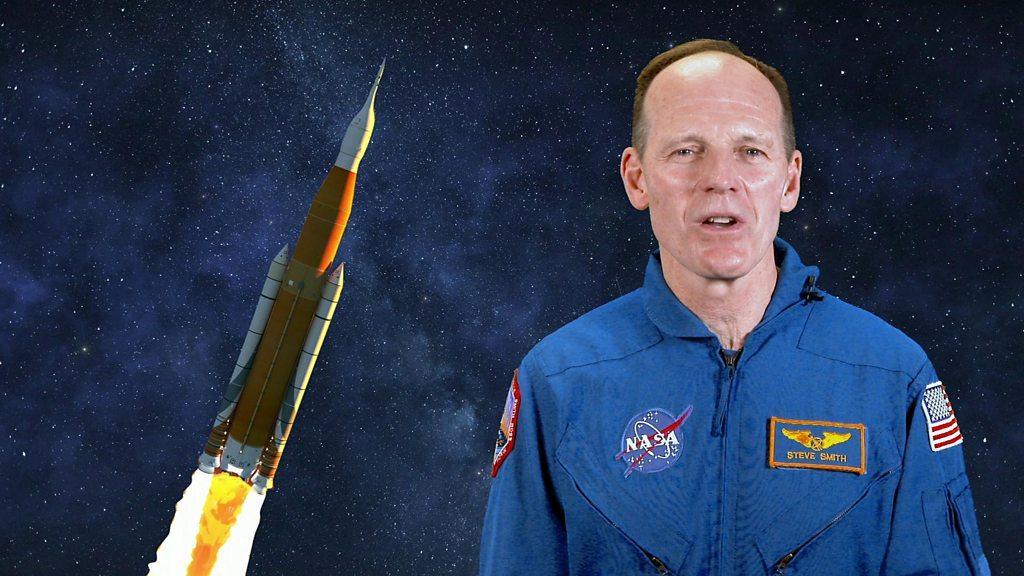Space travel: When can I go to space?
- Published
- comments
When can we travel to space?
It's an exciting time for space travel and exploration.
We've seen some pretty big missions this year, with Sir Richard Branson's Virgin Galactic flight to the edge of space and Former Amazon boss and billionaire Jeff Bezos' epic trip in the New Shepard rocket ship.
There are several upcoming missions on the horizon too, with SpaceX's Inspiration4 flight - which will be the very first all civilian mission to launch into orbit - due to take off later in September.
Sir Richard Branson's message for kids from space
The dearMoon project, which will see Japanese billionaire Yusaku Maezawa take eight people into space on an epic six-day tour, could take place as early as 2023.
And a company called Space Perspective is offering six-hour long flights to space in a pressurised capsule for a cool £90,000!
"The capsule is gently lifted into the air under a spaceballoon, powered by hydrogen gas, which is 18,000,000 cubic feet in volume when fully expanded as it reaches space," Jane Poynter who is the founder and Co-CEO of Space Perspective told Newsround.
"This means if a football stadium could fly, it would be able to float around inside the fully inflated spaceballoon."
All this space travel got us thinking about a very important question - when will ordinary people be able to go to space? You can read more about this below, but first, we need to go back in time...
History of space travel
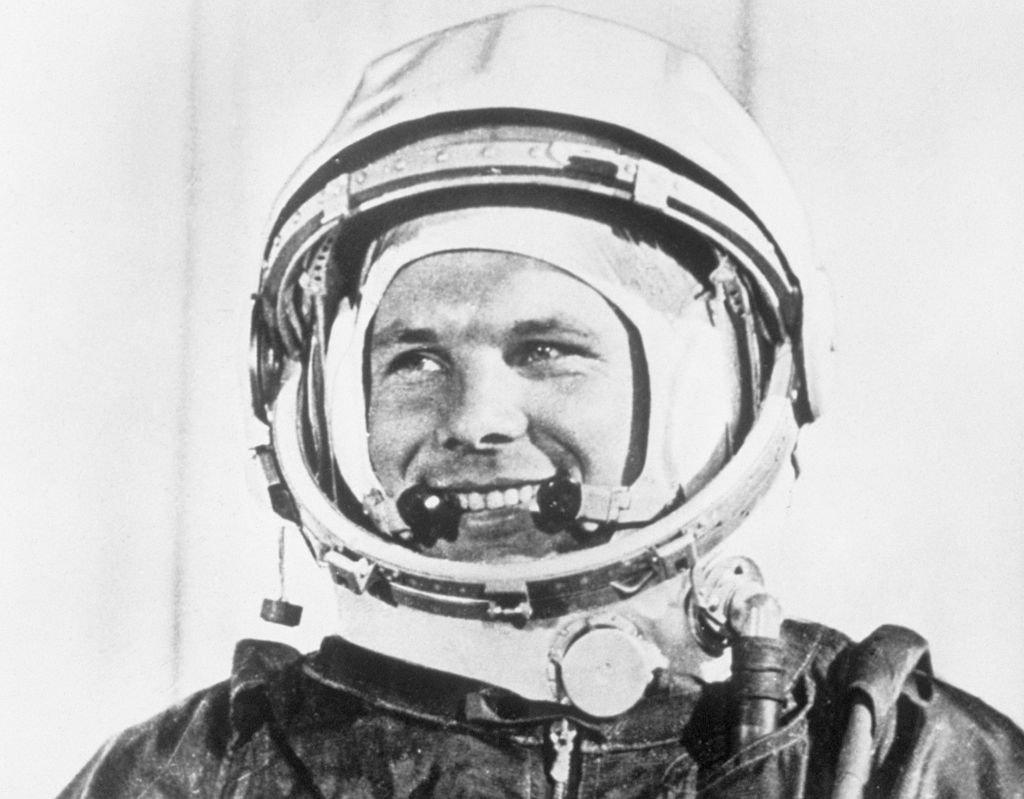
Yuri Gagarin was the first person to ever travel to space back in the 1960s
Human beings have been captivated by the idea of space for a long time and lots has been done over the years not only to get people there, but to also work out whether they can survive in space's unique conditions.
In October 1957, the Union of Soviet Socialist Republics (USSR) successfully launched the first artificial satellite, called Sputnik 1, into space during the Cold War.
It marked the beginning of what became famously known as the 'space race', which was a contest between the United States and the Soviet Union to see which country could make the greatest advancements in the world of space exploration.
In November of that same year, the USSR successfully launched another spacecraft. It was called Sputnik 2 and this time, there was a very special guest on board - a dog called Laika!
Space travel through the years
The launch of Sputnik 2 was bad news for the Americans who were keen to catch up. They'd previously made two unsuccessful attempts to launch a satellite into space, but finally saw a breakthrough in January 1958 when they launched a rocket carrying a satellite called Explorer.
The National Aeronautics and Space Administration, which is more commonly known as Nasa, was created later that year.
However, the Russians remained one step ahead. In April 1961, cosmonaut Yuri Gagarin became the first person ever to travel to space.
American astronaut Alan Shepard completed the same feat the following month and in 1969, the US managed to successfully send the first astronauts to the Moon, with Neil Armstrong becoming the first human to set foot on its surface.
Fast forward to the present day and it's clear advancements in space travel have come a very long way!
There are currently a number of astronauts and cosmonauts living on the International Space Station (ISS) which has been in orbit since 1998.
Last June, two Nasa astronauts made history after they successfully made it to the ISS on a SpaceX rocket owned by billionaire businessman, Elon Musk.
There are also plans for Nasa to send astronauts back to the Moon within the next decade, although it will no longer be as early as 2024 which was the original plan.
What does it take to get people to space?
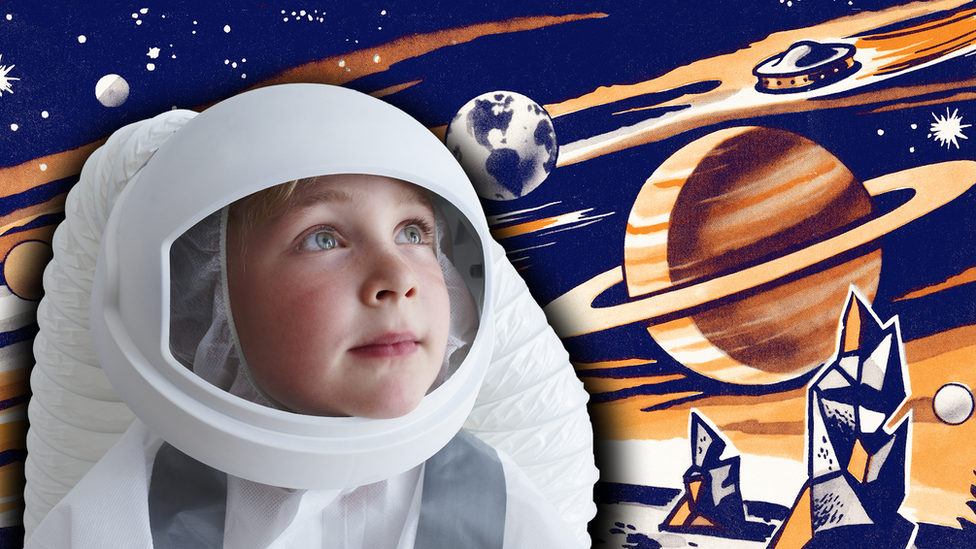
Astronauts have to undergo lots of training to prepare for life in space
Getting people to space is a long, tough and very expensive process! From building and testing out rockets to make sure they can actually transport humans safely, to training up astronauts for life in space, there's a lot of work that goes into space travel.
"New Shepard was designed for human space flight from the beginning. The last flight on July 20, 2021 was the first human flight," Blue Origin, the makers of the New Shepard rocket which transported Jeff Bezos and his crew to space told Newsround.
"Blue Origin has been flight testing the New Shepard rocket and its safety systems since 2012."
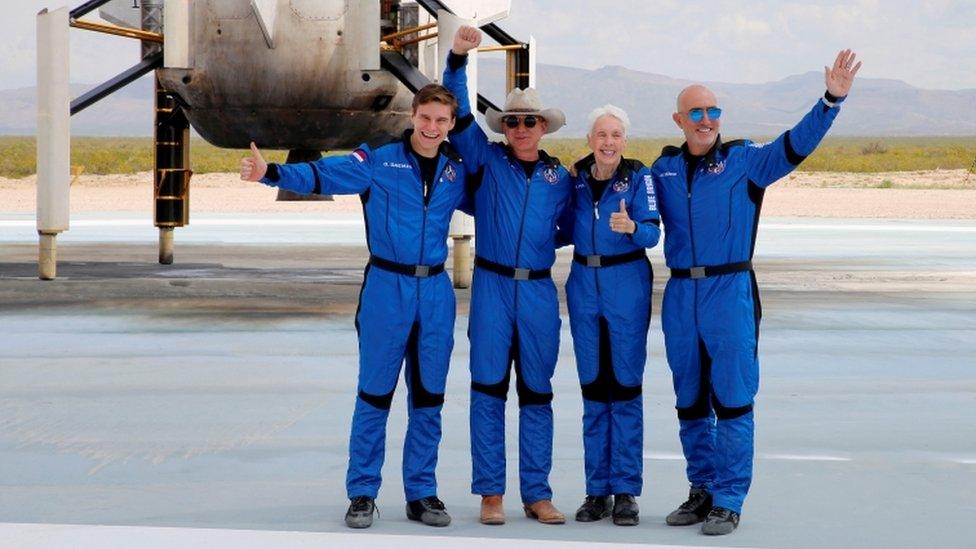
Former Amazon boss and billionaire Jeff Bezos travelled to the edge of space for the first time this year along with a small crew
The UK Space Agency (UKSA) also says there are limits to space travel.
"It's inspiring that more people are getting the opportunity to go into space, but we don't expect space travel to become a regular occurrence for members of the public any time soon," Paul Smith, who is a Robotic Exploration Programme Manager at the UK Space Agency, told Newsround.
"Not only does each mission cost many millions of pounds, but the conditions in space require extensive training and the use of complex equipment - not to mention the fact that there is very little room on board!"
However, just like aeroplanes flights, it's hoped that short trips to space will at some point become cheaper and more accessible for ordinary people.
"Once upon a time, there weren't many flights and they were just for the really rich as well," said Libby Jackson who manages the human exploration programme at the UK Space Agency.
"Today we see many more people being able to afford to buy much more reasonably priced aeroplane tickets to travel all around the world. So who knows quite what the future of space travel will bring!"
What other interesting space innovations we should be looking out for?
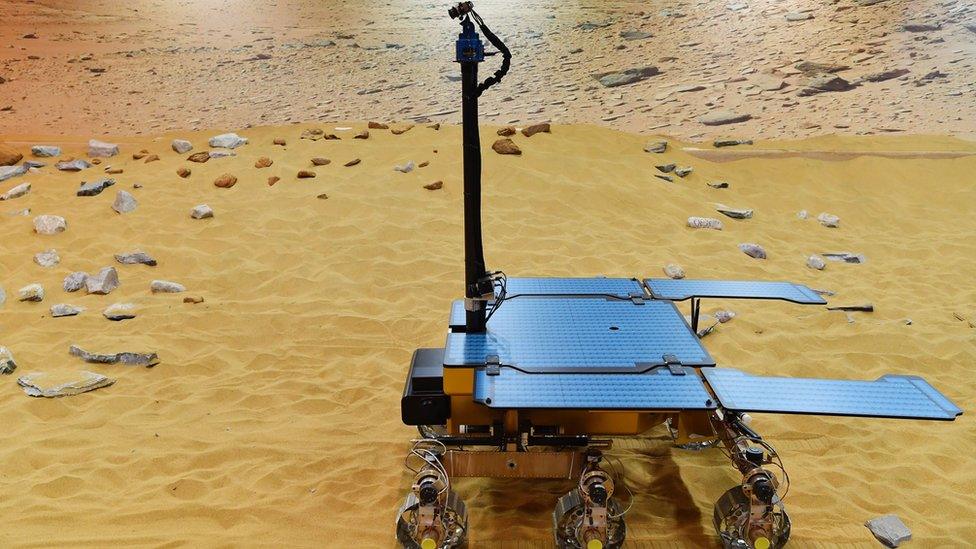
The Rosalind Franklin rover will be heading to Mars in the near future
Although it doesn't look like space tourism will be taking off any time soon, there are lots of interesting developments going on at the moment.
"Space is a big deal here in the UK," said Paul Smith from the UK Space Agency.
"We are world leaders in designing and building satellites (which provide services we all use every day), in helping deliver international missions to explore the Moon, Mars and other planets, and in using space technology to monitor climate change and observe our forests and oceans to help keep them safe from polluters and poachers."
The University of Liverpool, UK Space Agency and Kayser Space will be studying how living in space affects astronauts' muscles by carrying out experiments on the ISS later this year. It'll help scientists understand more about how ageing affects the human body here on Earth.
There are also some cool missions taking place outside the UK. The European Space Agency is sending its Rosalind Franklin rover to Mars next summer where it'll be looking for signs of life on the Red Planet. It'll also be joining forces with Nasa to bring rocks from Mars back to Earth for scientists to study.
- Published7 March 2018
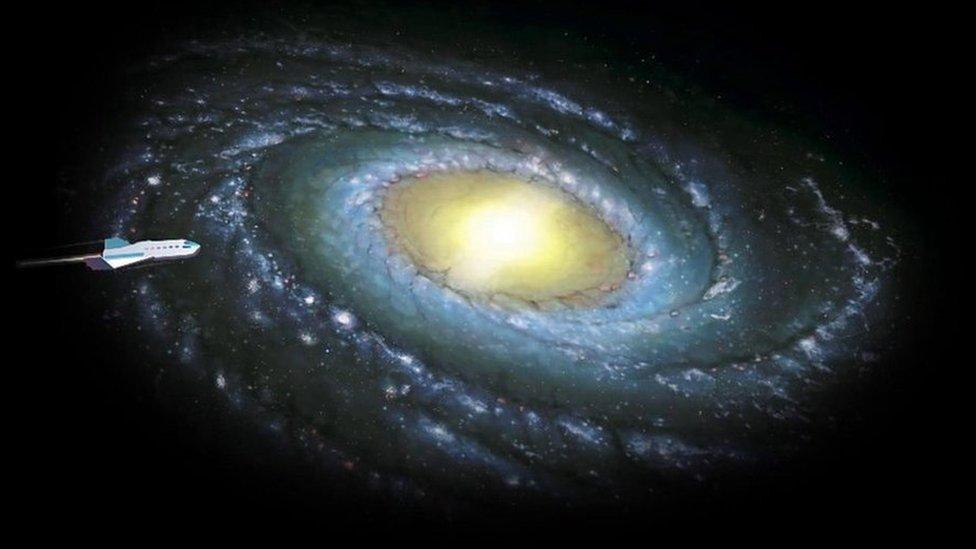
- Published12 June 2021
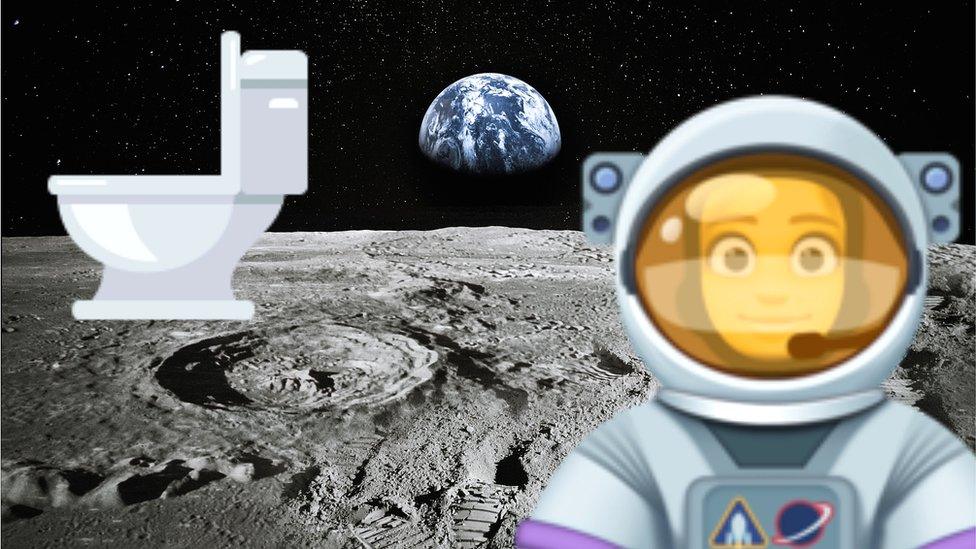
- Published20 February 2020
